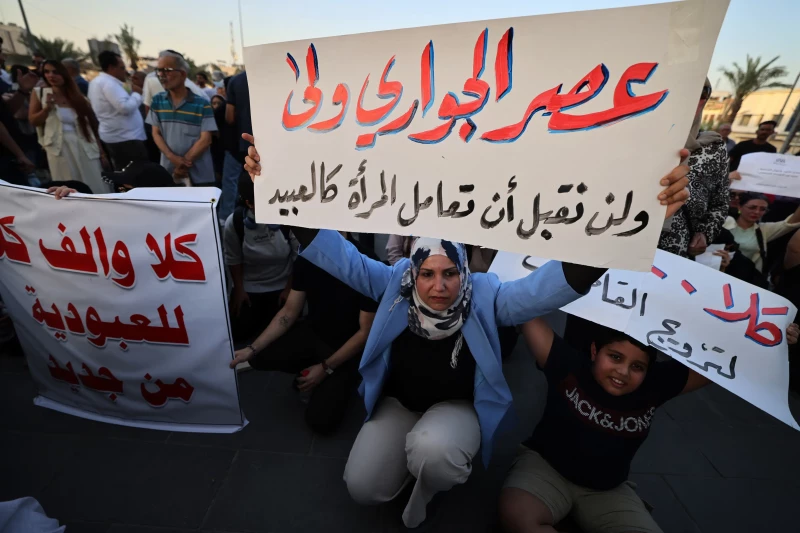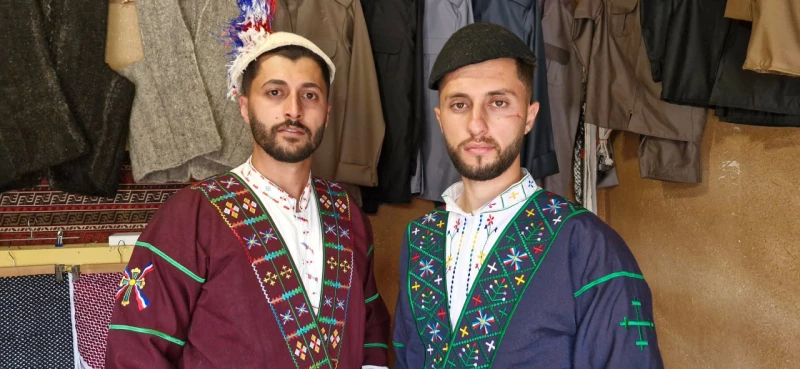“How can someone think this way about their neighbor? True, we are living through the worst time of our lives, but who said we would sell ourselves for money? Do they feel that we are war spoils, to be bought and sold at any time? Some will try to justify this offensive trend, but no justification can mend the tear in our hearts caused by the belittling of our suffering.”
Sally Naji, a 28-year-old Syrian woman who works at an Iraqi sales company, is extremely angry. Not because of a trend of Iraqis seeking to marry Syrians, but because of the way it is glorified.
"Go to Damascus, then head to the countryside, especially those areas affected by the war. Look for a beautiful, young girl who can cook and bake and doesn’t seek out restaurants and luxuries. Marry her for between (US)$500 and $2500 with her family's consent, then bring her back to Iraq after authenticating your marriage contract at the Iraqi Embassy in Damascus."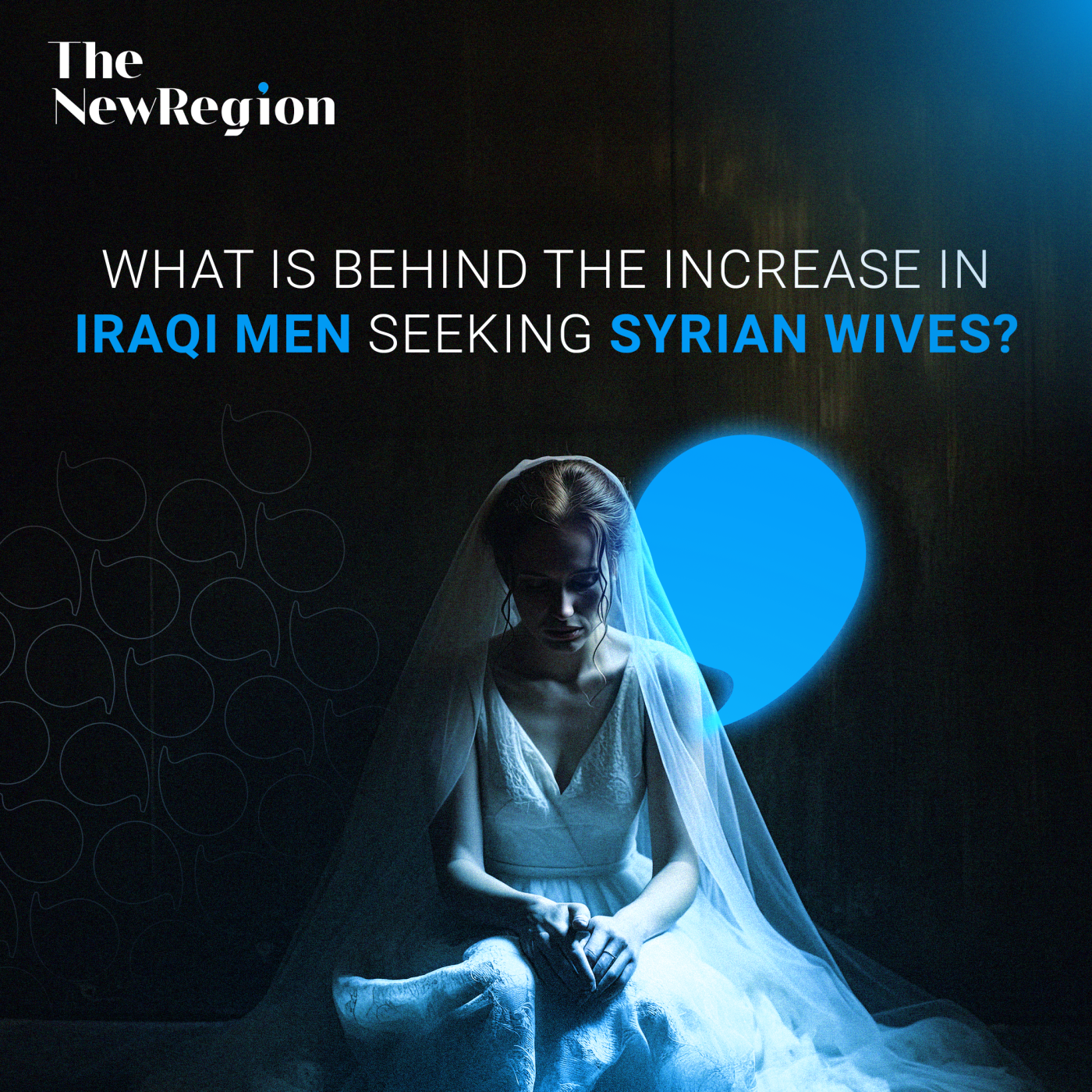
Cases of Iraqi men marrying Syrian women - specifically avoiding Iraqi women and their "problems" - are on the rise.
Sally claims some Iraqi young men view women as mere commodities. They take advantage of the severe hardships faced by Syrians, who struggle due to the ongoing war and economic crisis. Who could blame a woman for wanting to live in a safer country?
“When I returned home for a vacation, my neighbor told me that an Iraqi man was interested in marrying a girl of my age and looks. I’ve been working in Iraq for over seven years, so why are Iraqis suddenly paying attention to Syrian women now? Maybe the rise in the dollar’s value makes us seem more affordable to them,” Sally tells The New Region.
Why marry a Syrian?
Marrying an Iraqi woman is seen by some as prohibitively costly due to the substantial dowries, which average around 30 million Iraqi dinars (approximately US$20,000).
In contrast, a Syrian woman’s family might require only about 2 million Iraqi dinars (around US$1,500). This, combined with promises of affection and traditional Syrian homemaking, perpetuates a belittling narrative.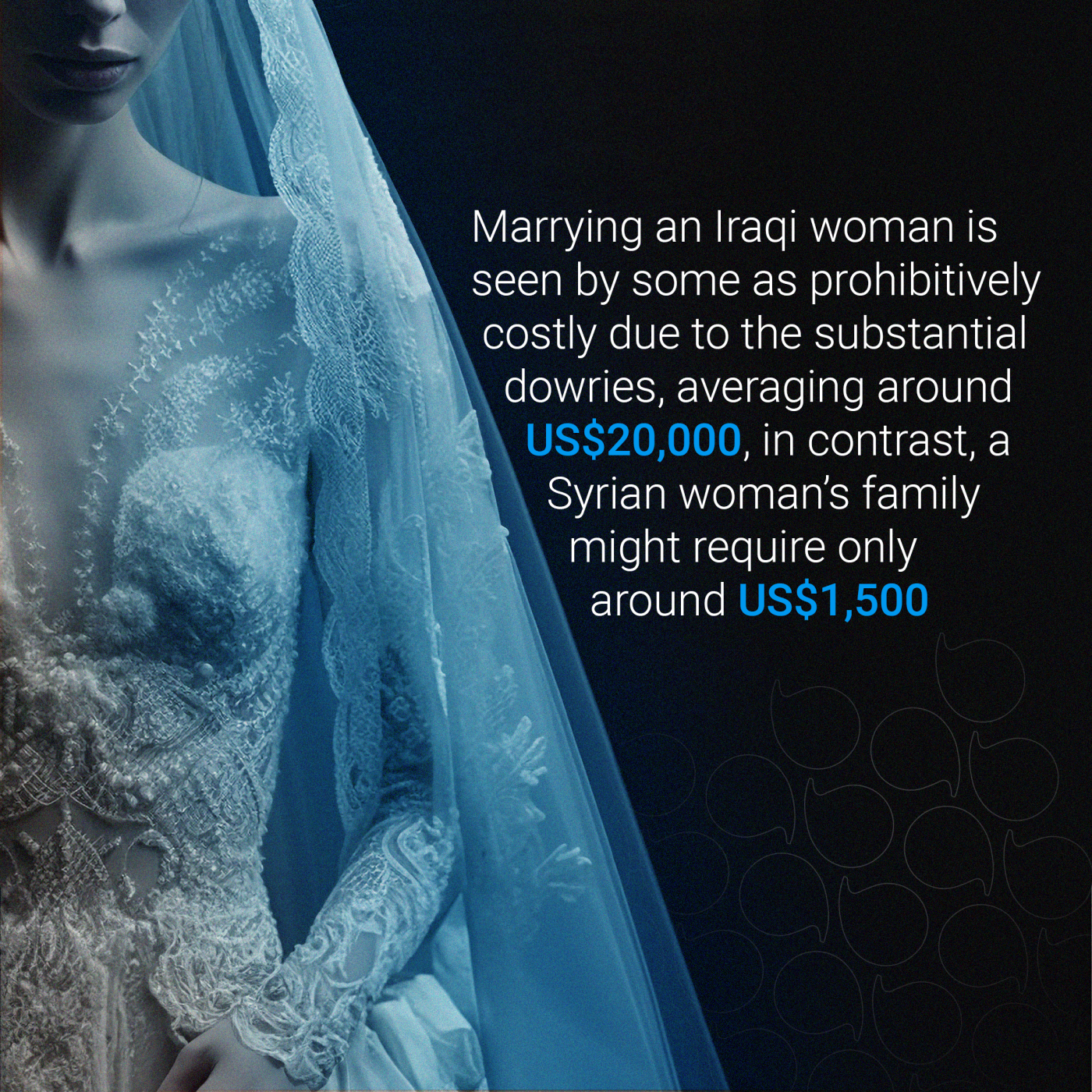
According to a statement by the Syrian Ambassador to Iraq, Sattam Jadaan Al-Dandah, nearly 5,000 marriage contracts between Syrian women and Iraqi men were recorded in 2023.
Commodification of women without legal protections
When journalist Manahil Al-Sahawi read various reports of Iraqi men marrying—or rather "buying"—Syrian women, her first question was why this issue hasn't been taken seriously, especially by Syrian and Iraqi media outlets. "I had two possible answers," she says. "Either Syrian and Iraqi societies don't want this matter to be widely known, or they see this form of marriage as natural and acceptable. In both scenarios, it's clear that we're confronting a new form of women's enslavement."
Disguised as modern marriage, this movement sees wealthy men seeking out poor, vulnerable young women or girls. In the minds of some Iraqi men, as well as in the broader Arab world, there exists an idealized image of the obedient Syrian girl—an image reinforced by dramas like "Bab Al-Hara." Some men may seek to marry Syrians expecting them to say, "At your command, cousin," as Al-Sahawi explains.
Enslaving women is not a new phenomenon. In times of crisis and war, women are often the first victims. Consider the rapes in Sudan and the rising violence against women in Syria, among other examples of conflict gender-based violence. These crises recreate past setbacks for women, dragging them into a past where physical, financial, and authoritative power is imposed over them by patriarchal societies.
Today's phenomenon of Iraqi men "buying" Syrian wives, with some of these women ending up on the streets or facing violence, is a direct consequence of the region's prolonged crises. These societies already harbor demeaning and dismissive views of women. "If someone believes they can marry cheaply, it's not surprising they might also resort to violence. He bought her with his money, so he feels he owns her," says Manahil.
Widespread impact on Syrian women in Iraq
The situation has a significant impact on all Syrian women in Iraq, including those married to Syrians and living with their husbands. They often encounter humiliating situations or suspicious glances, as if every Syrian woman is seen as a potential candidate for temporary marriage, Al-Sahawi explains.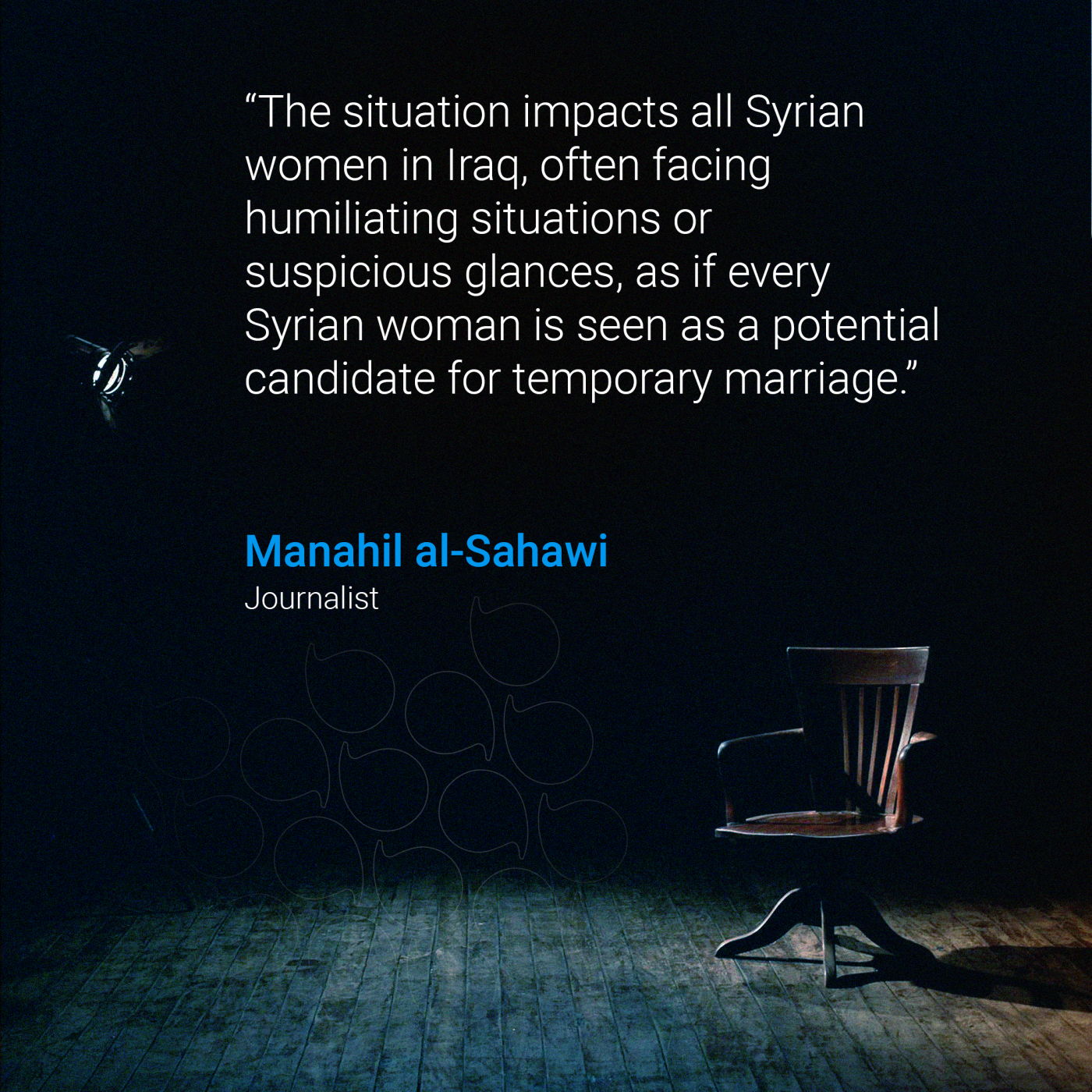
A new approach to marriage
There are two main ways that these marriages are arranged: through direct acquaintance, where the man meets the girl's family and formally proposes, or through intermediaries. These intermediaries are typically Syrians whose main objective is to profit. Some don't even require an official court contract, leaving many of these marriages unregistered, explains Saja Marwan, a 28-year-old travel agency employee.
Lack of legal protection for foreign women
Many of these men book tickets under the pretense of religious tourism, but in truth, they are actively seeking wives. Some have even posted video tutorials, offering “helpful" tips for Iraqi men. For example, they claim that a Syrian woman will focus solely on her husband, unlike an Iraqi woman who is often tied closely to her entire family. This implies that men can delay having children or restrict their wives from visiting their families, perhaps until the birth of the first child.
Lawyer Mohammed Ihsan points out that Iraqi law requires a father's consent for a mother to travel with their children, allowing husbands to maintain control over their wives.
"In the event of a divorce, a Syrian woman would return to her family and country, making it nearly impossible for her to claim her rights - whether it's alimony or the deferred dowry, unless she waives it to secure the divorce. This is particularly problematic because Iraqi law inadequately addresses the issues faced by expatriates. As a result, she either remains subservient to her husband or divorces and returns to her family without any financial support," Ihsan explains.
The Syrian community remains largely unaware of Iraq's skyrocketing divorce rates, now exceeding 300 cases daily, fueled by rising domestic violence, the high cost of living, and money laundering inflating real estate prices.
Syrian families often prefer Iraqi husbands for their daughters, seeking psychological and financial stability and avoiding the compulsory military service that Syrian men face. Additionally, Iraqis have earned a positive reputation, having integrated into Damascus since the Iraqi civil war in 2006-2007, when many found refuge in Syria.
According to Mohammed Ihsan, Iraqi women have increased both immediate and deferred dowry prices as a safeguard against abuse, intimidation, and the threat of abandonment. This move comes in response to the flexible laws that sometimes show leniency towards perpetrators.
A different perspective on the story
While the discourse around this trend demeans both Iraqi and Syrian women, pitting them against each other, not all marriages between the two nationalities follow this narrative.
Many Iraqi men are in fact genuinely attracted to the Levantine dialect, culture, and fair skin. Some seek to break away from traditional expectations that they must marry a cousin or a tribal member, often without full consent. Additionally, many are frustrated with tribal interference in marital disputes, which can escalate conflicts that might otherwise be resolved more amicably.
Ammar Al-Janabi, a 26-year-old aspiring to marry a Syrian woman, insists his reasons have nothing to do with sexism or commodification. For him, these are personal choices, not indications of racism or misogyny.



 Facebook
Facebook
 LinkedIn
LinkedIn
 Telegram
Telegram
 X
X

